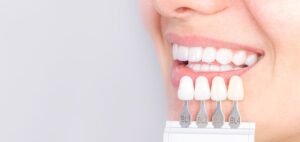What is Newborn Jaundice?
Jaundice in newborns, also known as neonatal jaundice, is a common condition, caused by hyperbilirubinemia (excess production of serum bilirubin). Bilirubin is an orange-yellow pigment formed in the liver by the normal breakdown of old red blood cells (RBCs).
Neonatal jaundice is characterized by turning the infant’s skin and eye color to yellowish and it is the most common cause of readmission for newborn babies.
What are the Causes of Newborn Jaundice?
Elevation in bilirubin in newborns may be due to several reasons:
- Their liver may not be fully developed, especially among preterm newborns, therefore, the metabolism of bilirubin would be slower.
- Premature babies may have feeding and digesting difficulties, resulting in insufficient milk intake.
- Newborns have a shorter lifespan of RBCs, and higher concentration of RBBs, leading to a higher production rate of bilirubin than adults.
- They may have delayed first tar-like stools (meconium), resulting in increased intestinal reabsorption of bilirubin.
- Sickle cell anemia may create abnormal shapes of red blood cells.
- ABO or Rh incompatibility between the mother and baby, resulting in increased breakdown of the baby’s RBCs, thus elevated bilirubin levels. This type needs medical intervention. The sooner the treatment, the better the results are.
- Other causes include medical conditions like rubella, cystic fibrosis, and hypoxia.
What are the Types of Newborn Jaundice?
1. Physiological Jaundice:
Physiological Jaundice is the most common type, especially in the first week of life. The newborn’s immature liver is often the cause of this type, resulting in excess bilirubin. However, it is mild, transient, and resolves without treatment. It usually resolves on its own when the liver matures without causing any complications.
2. Breastfeeding Jaundice:
This type of jaundice occurs in neonates that are breastfed. It usually presents during the first one to two weeks after birth and often resolves spontaneously, however, it may persist for 8 to 12 weeks of life.
The etiology of breast milk jaundice is not well known, nevertheless, it may occur due to reasons in the breast milk itself. Also, genetic mutations in the newborn may be present. Insufficient intake of breast milk and dehydration can also be risk factors, as well. It is recommended to continue breastfeeding to reduce its risk.
3. Breast Milk Jaundice:
This type differs from breastfeeding jaundice and occurs in well-fed newborns, often after the second weeks of life, and may last for a few weeks. It is usually harmless. The mechanism leading to breast milk jaundice is poorly understood; it may be due to substances in the mother’s milk that increase intestinal reabsorption of bilirubin.
How is Newborn Jaundice Diagnosed?
- Physical examination of signs includes checking the baby’s skin and eye color changing to yellow within the first 72 hours of birth.
- Blood levels of bilirubin must be tested through a bilirubinometer and a blood sample.
How is Newborn Jaundice Treated?
In most cases, neonatal jaundice resolves spontaneously. Mild hyperbilirubinemia often returns to normal as the newborn’s liver completes development. Additionally, continuous breastfeeding encourages bowel movement, which helps eliminate excess bilirubin.
Phototherapy (light therapy) is commonly used in cases of high or persistent elevation in bilirubin levels. It is a method of treatment using ultraviolet light on the baby’s skin to help break down bilirubin, usually taking one to two days.
In rare cases, blood transfusion may be recommended if phototherapy does not work and bilirubin levels need to be reduced quickly.
Created by WebTeb.com
Read more : Click Here





I have recently started a blog, the information you offer on this web site has helped me tremendously. Thank you for all of your time & work.
You made some nice points there. I looked on the internet for the subject matter and found most people will go along with with your site.
I truly appreciate your work, Great post.
Undeniably believe that that you said. Your favourite justification appeared to be at the web the easiest thing to consider of. I say to you, I definitely get irked while other folks consider issues that they plainly don’t know about. You controlled to hit the nail upon the highest and defined out the whole thing without having side effect , other people can take a signal. Will likely be back to get more. Thank you
There is perceptibly a bundle to identify about this. I believe you made some good points in features also.
My developer is trying to persuade me to move to .net from PHP. I have always disliked the idea because of the costs. But he’s tryiong none the less. I’ve been using WordPress on numerous websites for about a year and am worried about switching to another platform. I have heard excellent things about blogengine.net. Is there a way I can transfer all my wordpress content into it? Any kind of help would be greatly appreciated!
Hi there! This post couldn’t be written any better! Reading through this post reminds me of my good old room mate! He always kept chatting about this. I will forward this article to him. Pretty sure he will have a good read. Thanks for sharing!
I haven’t checked in here for a while as I thought it was getting boring, but the last several posts are good quality so I guess I’ll add you back to my everyday bloglist. You deserve it my friend 🙂
I am so happy to read this. This is the kind of manual that needs to be given and not the accidental misinformation that’s at the other blogs. Appreciate your sharing this greatest doc.
Very great information can be found on site.
I enjoy the efforts you have put in this, thankyou for all the great content.
I’ve been surfing on-line greater than three hours today, yet I never found any fascinating article like yours. It is lovely price enough for me. In my view, if all site owners and bloggers made good content material as you did, the net shall be much more useful than ever before. “I finally realized that being grateful to my body was key to giving more love to myself.” by Oprah Winfrey.
I love it when people come together and share opinions, great blog, keep it up.
hello there and thank you for your info – I’ve definitely picked up anything new from right here. I did however expertise some technical points using this web site, since I experienced to reload the website lots of times previous to I could get it to load properly. I had been wondering if your web host is OK? Not that I am complaining, but sluggish loading instances times will sometimes affect your placement in google and can damage your quality score if ads and marketing with Adwords. Anyway I’m adding this RSS to my e-mail and could look out for a lot more of your respective exciting content. Make sure you update this again very soon..
Wonderful site. Plenty of helpful information here. I am sending it to some pals ans also sharing in delicious. And of course, thank you to your sweat!
I have recently started a website, the information you provide on this website has helped me greatly. Thank you for all of your time & work.
Wonderful work! This is the type of information that are meant to be shared across the internet. Disgrace on Google for no longer positioning this submit upper! Come on over and discuss with my web site . Thank you =)
F*ckin’ tremendous things here. I’m very glad to see your article. Thanks so much and i’m looking ahead to touch you. Will you please drop me a mail?
I have to express thanks to this writer for rescuing me from such a condition. Because of looking throughout the online world and meeting solutions that were not productive, I assumed my life was gone. Existing devoid of the answers to the problems you have fixed by way of your main article content is a critical case, as well as those which could have in a negative way damaged my entire career if I had not discovered your web blog. Your good understanding and kindness in touching almost everything was very helpful. I’m not sure what I would have done if I had not encountered such a point like this. I can at this moment look forward to my future. Thanks for your time so much for your expert and results-oriented guide. I won’t be reluctant to endorse your blog to any person who needs and wants direction about this subject.
Just want to say your article is as astounding. The clarity in your post is simply great and i can assume you’re an expert on this subject. Fine with your permission let me to grab your RSS feed to keep updated with forthcoming post. Thanks a million and please continue the enjoyable work.
Respect to article author, some fantastic selective information.
free chip online casino australia, casinos no deposit bonus uk and
what is the most trusted online casino in united
states, or australian online casino no deposit signup bonus
Feel free to visit my homepage; su Gambling
I¦ve learn several just right stuff here. Certainly value bookmarking for revisiting. I surprise how so much effort you put to create this type of magnificent informative site.
I?¦ll immediately snatch your rss feed as I can not to find your email subscription hyperlink or e-newsletter service. Do you have any? Kindly allow me realize in order that I may subscribe. Thanks.
Some really nice and utilitarian information on this internet site, too I think the design has got good features.
You are my aspiration, I own few web logs and rarely run out from to brand.
you’ve an incredible weblog right here! would you like to make some invite posts on my blog?
I think other website proprietors should take this website as an model, very clean and magnificent user genial style and design, as well as the content. You are an expert in this topic!
This website is my intake, very superb layout and perfect subject matter.
Excellent read, I just passed this onto a friend who was doing some research on that. And he just bought me lunch because I found it for him smile Thus let me rephrase that: Thank you for lunch!
Hey there this is kinda of off topic but I was wanting to know if blogs use WYSIWYG editors or if you have to manually code with HTML. I’m starting a blog soon but have no coding experience so I wanted to get advice from someone with experience. Any help would be greatly appreciated!
Hello.This post was extremely motivating, especially since I was looking for thoughts on this issue last Friday.
I do like the way you have framed this particular challenge and it does offer us some fodder for thought. On the other hand, coming from what I have personally seen, I simply wish when the opinions pack on that people remain on point and not start on a tirade associated with some other news of the day. Anyway, thank you for this outstanding point and although I can not go along with it in totality, I regard the point of view.
Thanks for sharing. I read many of your blog posts, cool, your blog is very good.
I have recently started a blog, the info you provide on this website has helped me greatly. Thanks for all of your time & work.
This web site is really a walk-through for all of the info you wanted about this and didn’t know who to ask. Glimpse here, and you’ll definitely discover it.
Super-Duper website! I am loving it!! Will be back later to read some more. I am bookmarking your feeds also.
You have brought up a very great points, thankyou for the post.
Hello, i believe that i noticed you visited my weblog thus i got here to “return the want”.I’m attempting to to find things to improve my website!I guess its good enough to use a few of your concepts!!
After study a few of the blog posts on your website now, and I truly like your way of blogging. I bookmarked it to my bookmark website list and will be checking back soon. Pls check out my web site as well and let me know what you think.
This web site is really a walk-through for all of the info you wanted about this and didn’t know who to ask. Glimpse here, and you’ll definitely discover it.
It’s hard to find knowledgeable people on this topic, but you sound like you know what you’re talking about! Thanks
Woah! I’m really digging the template/theme of this site. It’s simple, yet effective. A lot of times it’s very difficult to get that “perfect balance” between usability and appearance. I must say you have done a superb job with this. Additionally, the blog loads very quick for me on Opera. Superb Blog!
Excellent analysis
magnificent points altogether, you just gained a new reader. What would you suggest in regards to your post that you made some days ago? Any positive?
I view something truly interesting about your blog so I saved to my bookmarks.
Excellent post. I was checking continuously this blog and I’m inspired! Extremely useful information particularly the remaining section 🙂 I deal with such info a lot. I used to be seeking this certain info for a long time. Thanks and good luck.
you are truly a good webmaster. The web site loading velocity is amazing. It kind of feels that you’re doing any distinctive trick. Furthermore, The contents are masterwork. you’ve done a great process in this subject!
My coder is trying to convince me to move to .net from PHP. I have always disliked the idea because of the costs. But he’s tryiong none the less. I’ve been using Movable-type on numerous websites for about a year and am nervous about switching to another platform. I have heard very good things about blogengine.net. Is there a way I can import all my wordpress posts into it? Any kind of help would be really appreciated!
Insightful piece
I intended to send you the little word to finally thank you very much the moment again with your pleasing tricks you’ve featured in this article. It was extremely open-handed with people like you to deliver publicly exactly what a few individuals could have offered for an e book to help make some cash on their own, chiefly seeing that you might well have tried it if you considered necessary. These creative ideas likewise served like the fantastic way to comprehend many people have the same dreams just as my own to grasp a good deal more with regards to this condition. I am certain there are many more pleasurable sessions ahead for folks who examine your blog.
obviously like your web-site but you have to check the spelling on quite a few of your posts. A number of them are rife with spelling issues and I find it very troublesome to tell the truth nevertheless I will definitely come back again.
You can definitely see your skills in the work you write. The arena hopes for even more passionate writers like you who aren’t afraid to say how they believe. Always go after your heart.
daftarkan dengan akun VIP yang terpercaya dan bermain taruhan judi bola sekarang dengan tujuan dan jaminan untuk mendapatkan kemenangan besar
I’m impressed, I must say. Rarely do I come across a blog that’s both educative and amusing, and let me tell you,
you have hit the nail on the head. The problem is an issue that not enough men and women are speaking intelligently about.
I’m very happy I stumbled across this during my
hunt for something regarding this.
I want to to thank you for this very good read!!
I certainly enjoyed every bit of it. I have you bookmarked to check out
new things you post…
Remarkable! Its truly amazing post, I have got much clear idea about from this post.
Well I definitely liked reading it. This tip offered by you is very helpful for accurate planning.
My spouse and I absolutely love your blog and find the majority of your post’s to be just what I’m looking for. can you offer guest writers to write content for you? I wouldn’t mind writing a post or elaborating on some of the subjects you write in relation to here. Again, awesome weblog!
Good day! I could have sworn I’ve visited this blog before but after looking at a few of the posts I realized it’s new to me.
Regardless, I’m definitely pleased I found it and I’ll be book-marking it and checking
back frequently!
of course like your website but you have to check the spelling on quite a few of your posts. Many of them are rife with spelling problems and I find it very troublesome to tell the truth nevertheless I will definitely come back again.
Greetings from California! I’m bored at work so I decided to check out your site on my iphone during lunch break. I love the info you present here and can’t wait to take a look when I get home. I’m shocked at how fast your blog loaded on my mobile .. I’m not even using WIFI, just 3G .. Anyways, great site!
Thanks for sharing your info. I really appreciate your efforts and I am waiting for your
further post thanks once again.
Appreciation to my father who shared with me regarding this webpage, this
webpage is truly amazing.
Definitely believe that which you said. Your favorite reason appeared to be on the net the easiest thing to be aware of. I say to you, I definitely get annoyed while people consider worries that they just do not know about. You managed to hit the nail upon the top as well as defined out the whole thing without having side effect , people could take a signal. Will probably be back to get more. Thanks
Simply wish to say your article is as amazing.
The clearness in your post is just excellent and i could
assume you’re an expert on this subject. Fine with your permission let me to grab
your feed to keep updated with forthcoming post. Thanks a
million and please continue the rewarding work.
It’s actually a great and useful piece of info. I am glad that you simply shared this helpful info with us. Please stay us up to date like this. Thanks for sharing.
Good day! This is my first visit to your blog! We are a group of volunteers and starting a new initiative in a community in the same niche. Your blog provided us beneficial information to work on. You have done a wonderful job!
I have recently started a website, the information you offer on this web site has helped me greatly. Thanks for all of your time & work. “Men must be taught as if you taught them not, And things unknown proposed as things forgot.” by Alexander Pope.
I don’t even know how I ended up here, but I thought this post was great. I don’t know who you are but definitely you are going to a famous blogger if you aren’t already 😉 Cheers!
It’s really a nice and useful piece of information. I’m satisfied that you shared this helpful info with us. Please stay us up to date like this. Thank you for sharing.
This blog is definitely rather handy since I’m at the moment creating an internet floral website – although I am only starting out therefore it’s really fairly small, nothing like this site. Can link to a few of the posts here as they are quite. Thanks much. Zoey Olsen
Hello, this weekend is good designed for me, for the reason that this occasion i
am reading this fantastic informative article here at my house.
Today, I went to the beachfront with my kids. I found a sea shell and gave it to my 4 year old daughter and said “You can hear the ocean if you put this to your ear.” She put the shell to her ear and screamed. There was a hermit crab inside and it pinched her ear. She never wants to go back! LoL I know this is entirely off topic but I had to tell someone!
Greetings from Idaho! I’m bored to tears at work so I decided to check out your site on my iphone during lunch break. I enjoy the information you present here and can’t wait to take a look when I get home. I’m shocked at how fast your blog loaded on my cell phone .. I’m not even using WIFI, just 3G .. Anyways, awesome site!
I am really enjoying the theme/design of your web site. Do you ever run into any browser compatibility issues? A couple of my blog visitors have complained about my blog not operating correctly in Explorer but looks great in Chrome. Do you have any solutions to help fix this problem?